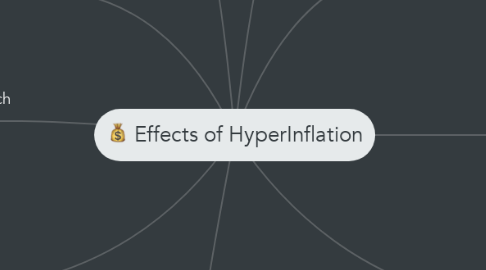Effects of HyperInflation
by Layla Ameer


1. The Middle Class
1.1. Many lost faith in the Weimar Republic and were convinced that it was unable to deal with serious economic problem.
2. Massive Price Rises
2.1. Wages Could not keep up with price rises. Changes in the price of bread in Berlin (price in marks): July 1923 = 3,465........August 1923 = 69,000........ September 1923 = 1,512,000......... October 1923 = 1,743,000,000............. November 1923 = 201,000,000,000
3. The Rich
3.1. They usually had land and possessions and were protected from the worst effects of hyperinflation.
4. Money
4.1. German money became worthless. Some people had been saving for years. These savings became worthless.
5. Summary
5.1. Hyperinflation hit people who relied on their savings, because they became worthless. Pensioners who were on a fixed pension found that it bought them less and less. People who relied on wages also suffered, as wages rose slower than prices. In late 1923, the price of food or fuel went up so fast that some employers paid their workers twice a day , so they could shop earlier in the day, before prices rose again.
5.1.1. Hyperinflation benefitted some people. Some farmers made enough from the rise in food prices to more than cope with other prices rising. People who had loans and mortgages were sometimes able to pay off loans and buy up smaller, failing, businesses cheaply.
